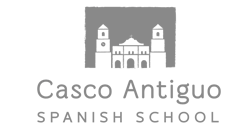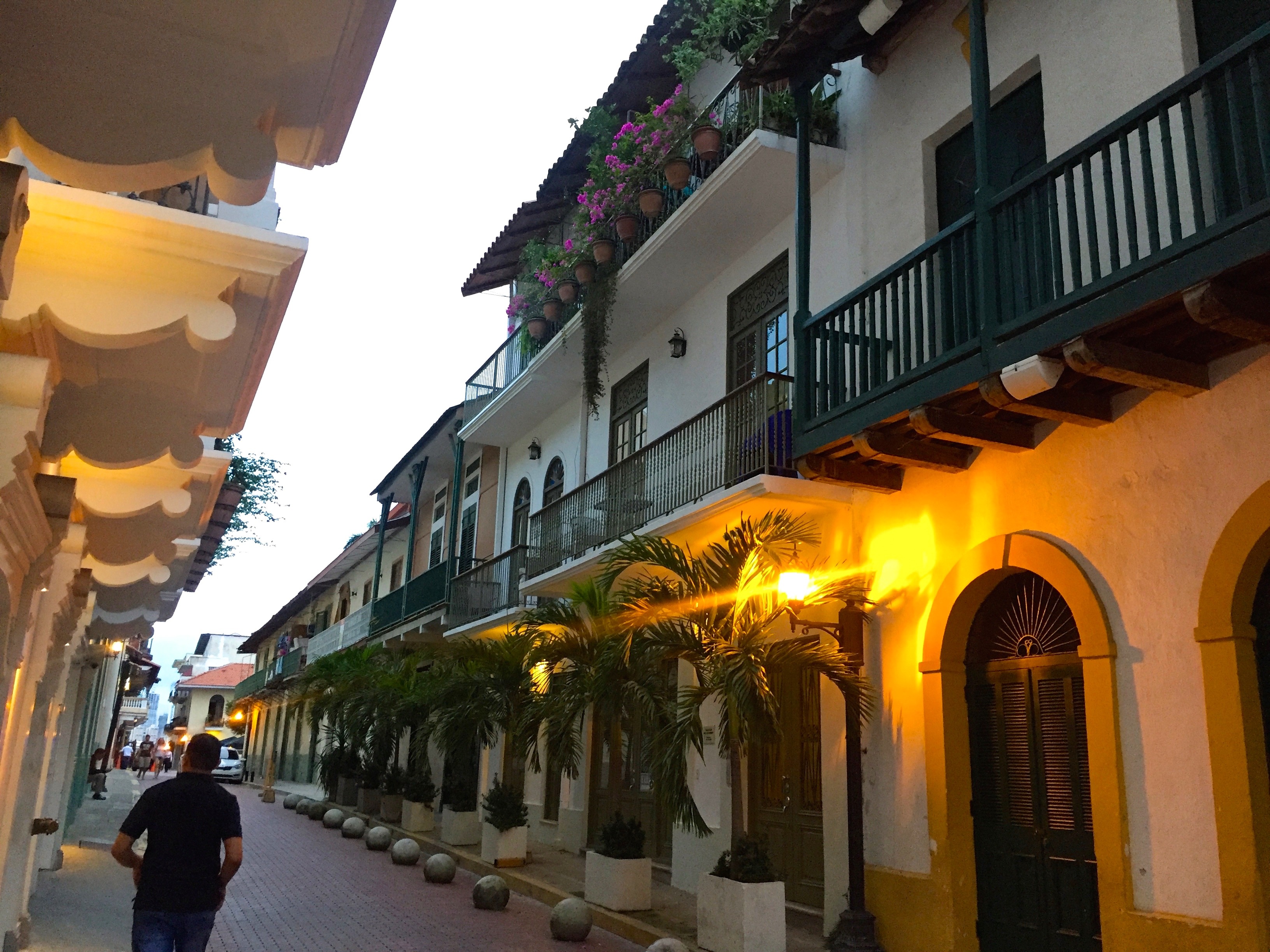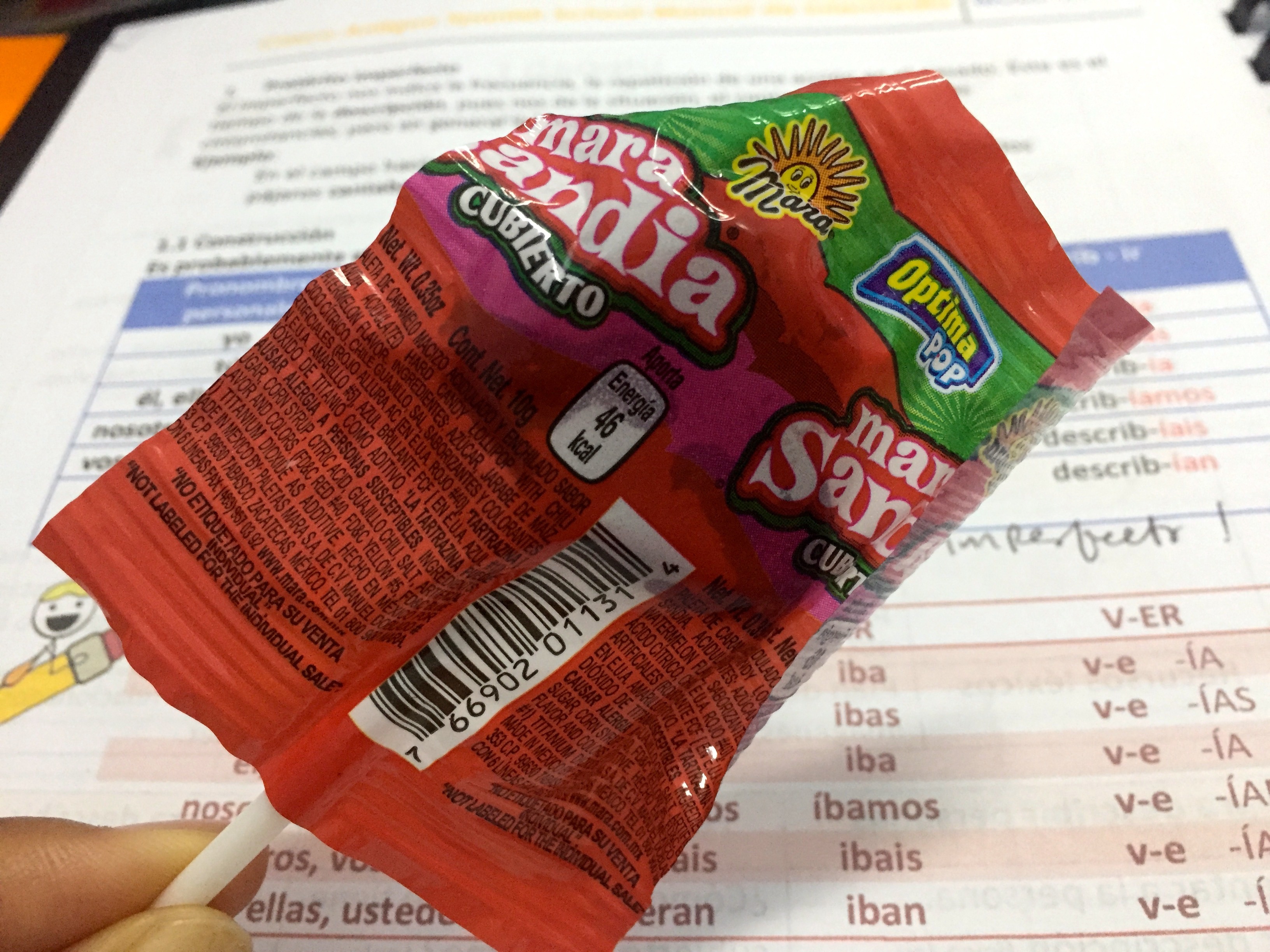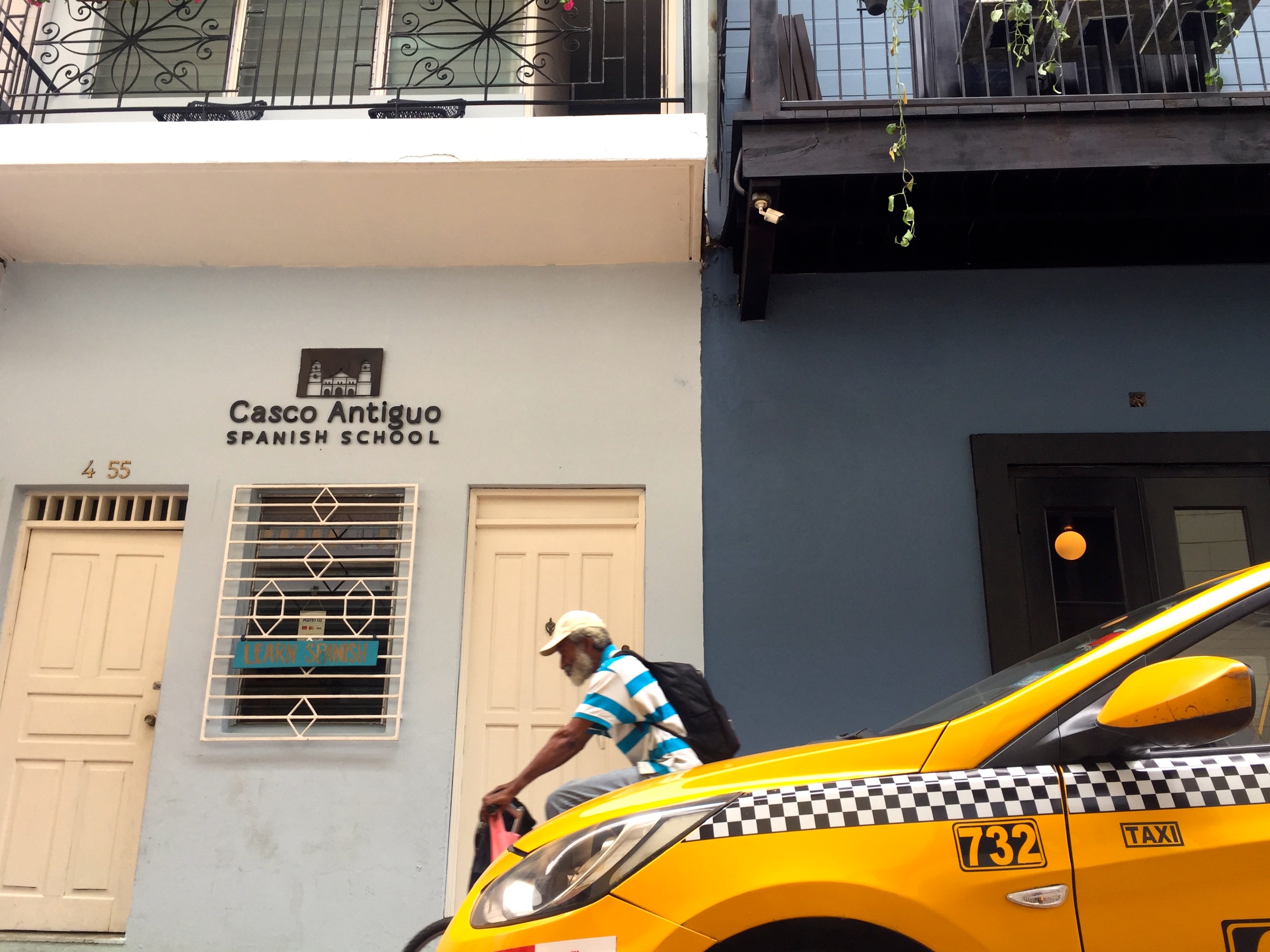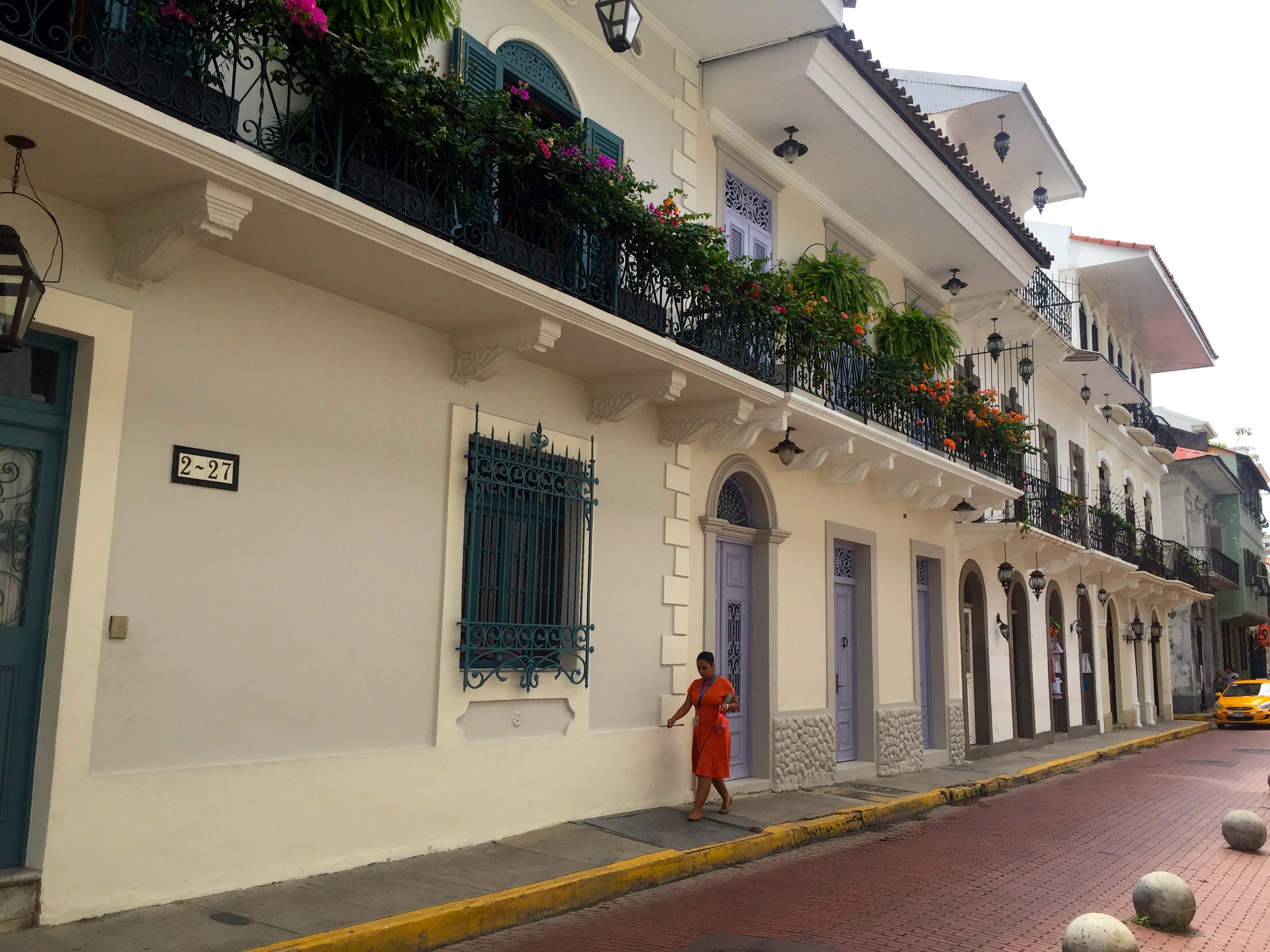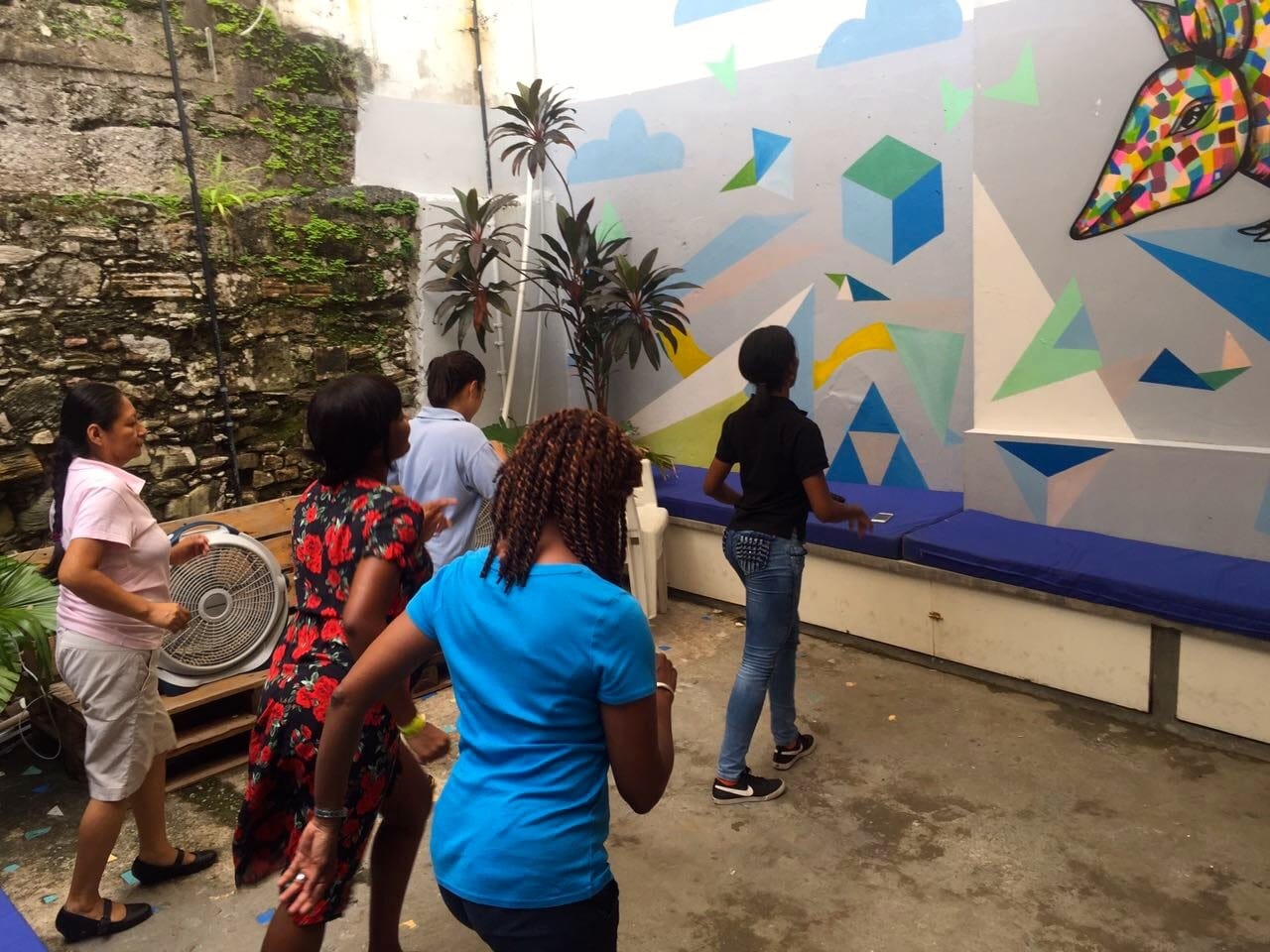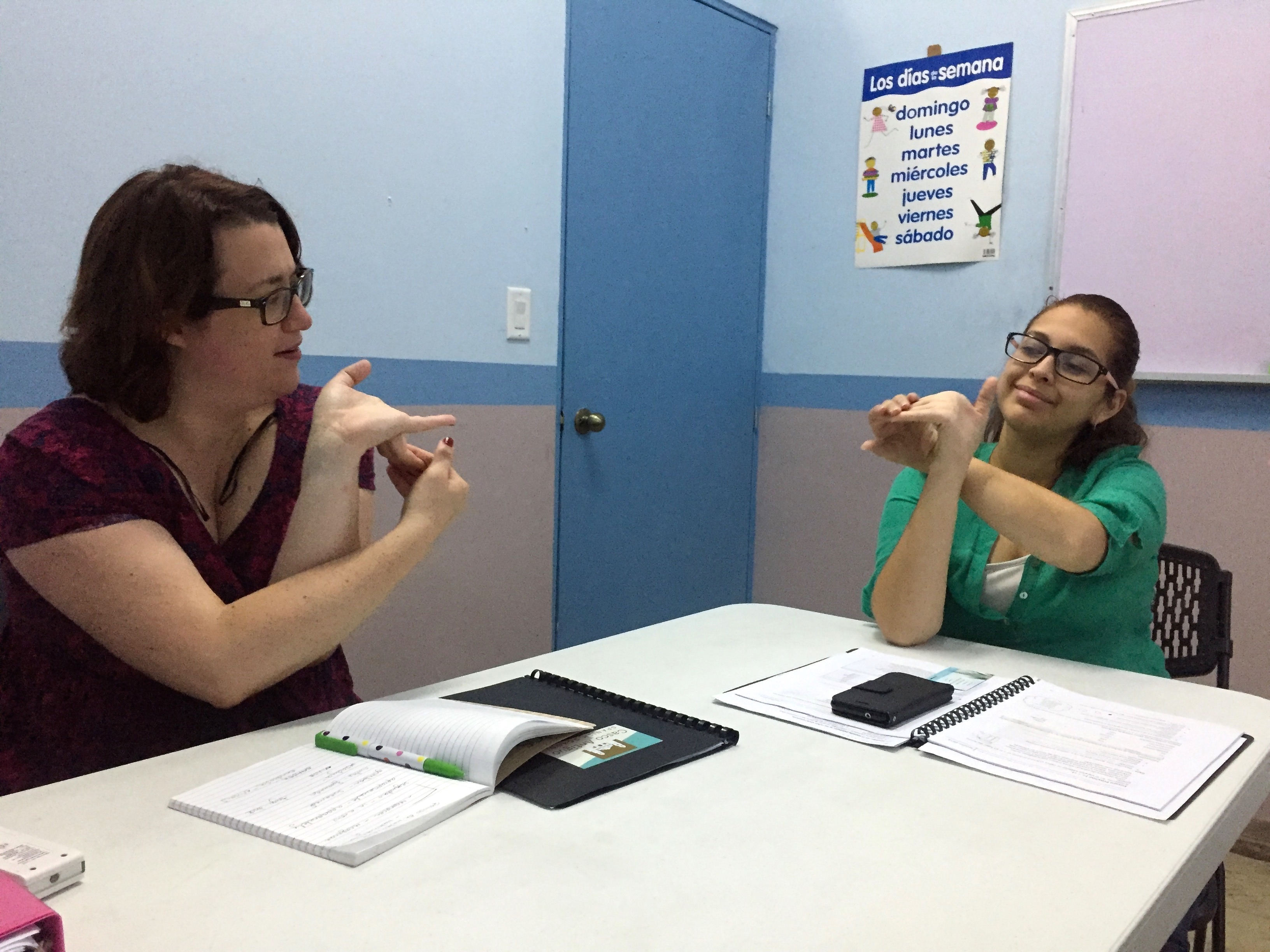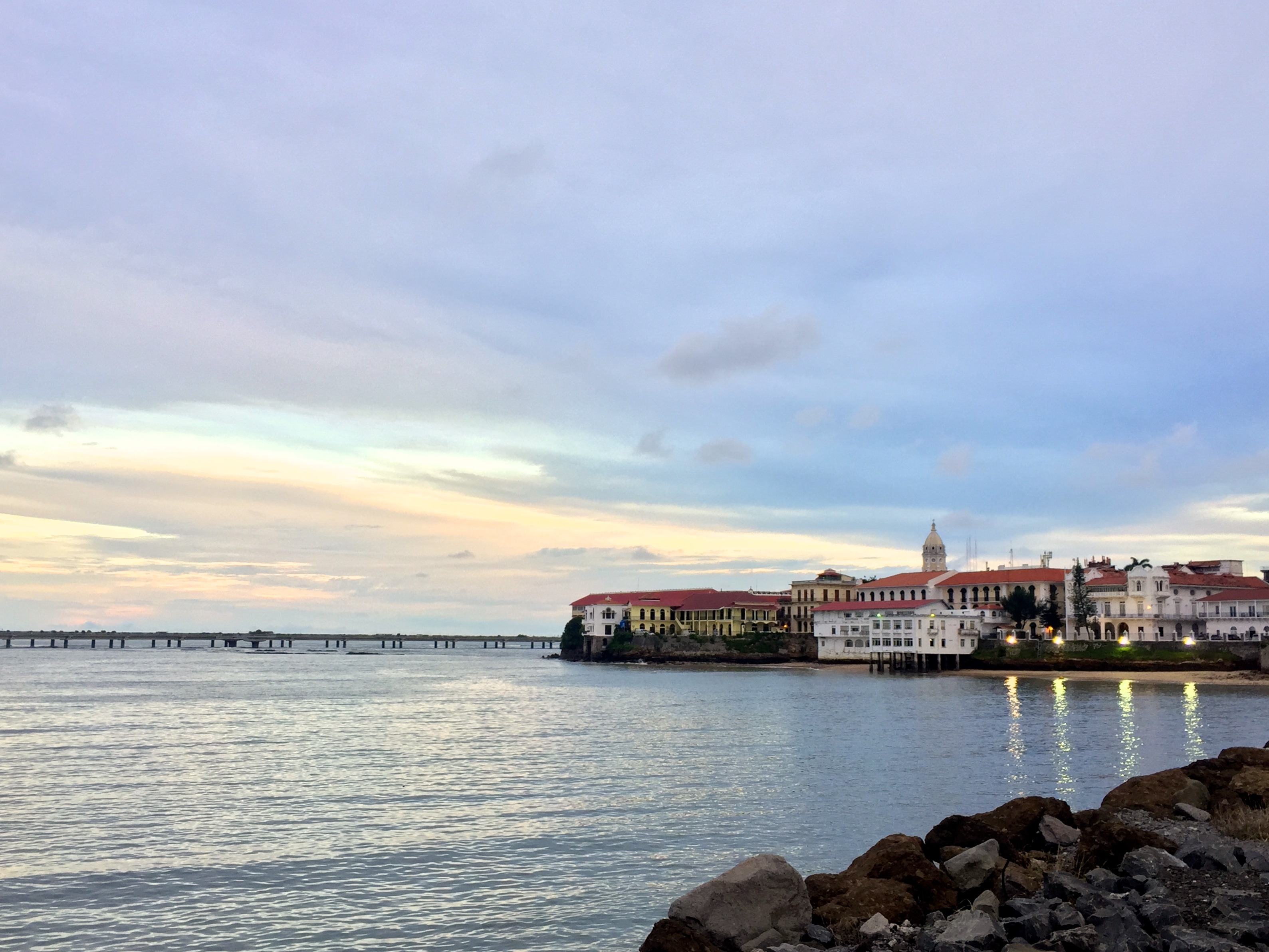What it’s like to learn Spanish at Casco Antiguo, from one of our students
Latin culture has held a space among my fascinations for as long as I can remember. Subsequently, wanting to learn Spanish has been a lingering aspiration of mine. It is spoken in over 20 countries and phonically; it’s exceptionally kind to the ear. One fine day in Panama City, the sweltering humidity was punishing and I needed to order a cool drink, but I stumbled. It had been so long since I spoke Spanish and I had forgotten how to simply say that I was thirsty. After deciding to base myself in Panama for some time, it became painfully clear to me that I needed some sort of refreshment- of my Spanish skills that is.
Speaking Spanish is an absolute asset, which once harnessed, literally doubles the size of your world. Who wouldn’t want 400 million potential new friends? Imagine my luck when casually strolling down the street in my neighbourhood of Casco Viejo, I came upon the Casco Antiguo Spanish School. I walked in to enquire about their classes and greeted the school’s founder with three kisses on the cheek. This was my first mistake. “People here only do one kiss”, he noted. It was clear I had much to learn.
My journey started with two placement tests. The first was a written test, which was sent to me by email and the latter was oral. My speaking test was conducted by the school’s Academic Director Eddalia, who can always be seen smiling in the corner of the school as you walk in. When the results of my tests came in, I was slightly mortified and discouraged to discover that my proficiency level was lower than I thought. It was a hard pill to swallow. After all, I had taken Spanish classes for two years at University and know the lyrics to almost every song ever released by Daddy Yankee. How could this be?
I was placed in the intermediate category at level 4 (there are a total of nine levels). My profesora would be Deya, a sprightly Mexican woman from Monterrey. My lessons with her were part insight into Latin lexicon, and part ‘Visit Mexico’ brochure. We learnt that Mexico is actually the birthplace of chocolate and the that name itself is derived from the Mexican dialect of Nahuatl. She recounted tales of her childhood in Mexico and the chilling legend (leyenda) of the Nahuales; demons which supposedly bite the big toe of small children in order to retain their youth. Fear of these creatures meant that she always slept with her feet tucked firmly under the blankets. I was astonished that I was actually able to understand the entirety of this story in Spanish. She told me that if I were to ever go back to Mexico, I’d have to visit Puerto Escondido in Oaxaca (Wahaca to you and I). As a beach lover, I’d apparently appreciate the fun hippie town vibes and great waves (olas in Spanish). She also let us in on a secret remedy that chilli loving Mexicans utilize to subdue the pain of surpassing one’s spice threshold: eating a spoonful of sugar.
My favourite lesson was when Deya brought in some chilli lollipops from Mexico for us to try. It was one of the most peculiar and uncomfortable things I ever tasted. My initial thought was that there was nothing at all sweet about this “sweet”. My classmate Lara and I gave each other a telling look and burst out laughing. It was clear we didn’t like what were reluctantly chewing, but didn’t know how to tell Deya without causing offence. Deya too then erupted into riotous laughter; I believe it was my odd chuckle that was tickling her. She also gave us Mazapán, a Mexican sweet, which basically translates as “peanut cheese”. The initial taste was perplexingly arresting. The after taste was just darling.
I know what you’re thinking: we’re not in Mexico, right? Well, Deya also brought to my attention several other cultural tit bits that I certainly wouldn’t have picked up on if I had been relying solely on Google Translate as my Spanish teacher. For example, the way to say, “What’s up?” in Spanish is “¿Que paso?” Panamanians however, turn this on its head and prefer to say “¿Que xopa?” (pronounced keh-so-pah). Also, the best means to get the attention of a server in a restaurant here is by saying ‘disculpame’ (excuse me) or ‘joven’ (young person) to either a man or a woman. But, what if they aren’t young, I wonder.
About the Classes
I took Small- Group Intensive classes, which contain a maximum of four students. I was lucky enough to only ever have one other student in my class, which made for an exceptionally cozy atmosphere. It certainly didn’t hurt either that I absolutely loved my teacher, Deya. I loved her laugh and our trio had exceptional chemistry. Our giggles could be heard through the halls, prompting other staff and students to wonder what on earth was so funny. Group classes really allow you to benefit from other people’s curiosities and questions. You also get to spend time with others and they are therefore, a really great way to make new friends if you are fresh to the city. I wholeheartedly looked forward to going to school each day.
All my classes at this intermediate level were conducted entirely in Spanish. A huge chunk of the class was actually dialogue. This helps to diminish the fear of speaking, which I find to be one of the greatest drawbacks of gaining fluency in another language. The school’s aim really is cultural immersion and competency. Your teacher doesn’t just throw buckets of grammar at you; they want you to be able to apply your objectives in real life. Teachers have been known to take students on walking tours around the old town and assist them in ordering and interacting with locals. Whenever we were overheard in the kitchen speaking English, the teachers would give us a gentle, yet stern reminder that we were now in a Spanish only zone. We were really encouraged to put our skills into practice so as to be able to take them home, wherever home is. The school is littered with people from all walks of life and is so international. The first week my other classmate was a Frenchman who had been living in Malta and Canada and the second week I had a Londoner. They have taught students from Yaoundé and ambassadors from Canada. I almost never met two people from the same place the entire time I was there.
Beyond the classes, there is so much on offer at Casco Spanish and had there been more time, I would have loved to get involved in some of the volunteering opportunities that are available to students free of charge. The school is now located on picturesque Avenue A in Casco Viejo, but was previously housed within a community centre and has retained a strong relationship with many of its former NGO neighbours. The school’s new building is quaint and spread over two floors. There are seven classrooms and each is named after the provinces of Panama, for you to better acquaint yourself with the country’s geography. Class scheduling is flexible as they endeavour to slot students in as best as they can, paying attention to your preferences and abilities. Anyone who knows me at all will attest to the fact that I am notoriously bad at early starts, so I was thrilled that my request to have afternoon classes was very kindly met.
I had a brisk walk to school each day through beautiful Casco Viejo, with the handsome colonial houses greeting me as I walked through the narrow streets. Casco Viejo is exceptional and it’s all very convenient that your hotel, yoga, favourite restaurants, and even your Spanish classes are all nearby, in one neighbourhood. Having the school so close to where I was staying really added to my experience: I could not only nip back home during my breaks, but I also had a plethora of cafes and gelaterias to choose from to while away the time. Another fact I appreciated about the school was that all the classrooms are air-conditioned. Trust me, after even just a few days in Panama City; a faithful air-conditioner becomes your best friend, your confidant and your salvation. It’s the only way to survive in the Panamanian heat. Your other salvation here is ice-cream. Upon arrival at the school, the ever-friendly marketing director Livia coached me on where to go and pointed me in the direction of Hay Mi Negra, which she described as “the Cirque du Soleil of ice-cream” (we can certainly see why she works in marketing). The staff really help you kick start your adventure in the City whether you’re here for a while, or a little while longer.
Extra-Curricular Activities
Armed with the knowledge that many students want more than just a Spanish class, the school offers a host of activities for you to be able to share your experiences with others, because life’s better when shared, right? The healthy schedule of extra-curricular activities commence in the evenings at 5pm. Tuesday is happy hour at one of Casco Viejo’s finest rooftop bars, craft beer breweries or even a rum distillery. Wednesday is salsa class, taught by a professional dancer, Thursday is a sunset bike tour along Cinta Costera and Friday is beach volleyball. Did I mention that all said activities are free of charge for all students?
My preferred activity was hands down the salsa class each Wednesday with Panamanian dancing goddess Ero. The first week was all girls, but on the second week we actually had one chico, so finally, I didn’t have to play the role of the gent- result! Our lone male dancer was Englishman Patrick, who was well aware of the fact that he lacked any and all ability to move his waist whatsoever. His robotic limbs flying around flimsily made my day. Patrick told me that he signed up for a one day class at Casco Spanish school as “a ruse to make friends”. And make friends he did, as immediately after salsa, we headed to rooftop bar Tantalo for a scrumptious dinner along with some other new friends. At my third dance class, our teacher decided to throw in some additional Merengue lessons. Astonishingly, I discovered that I had been dancing Merengue unknowingly all my life. The steps were so easy, and I couldn’t wait to practice at a local disco (as they are still called here) later that evening. The after school activities were a welcome extension of our Spanish curriculum, and were also conducted in Spanish.
What I Learnt
People have been telling me for years that when I speak English, I “don’t have an accent”. It’s neither from here or there. Not British, or North American; a Mid-Atlantic drawl perhaps. Deya brought to my attention the fact that my Spanish accent too is also “nothing”. It is neutral and closer to Latin America than it is to Spain, but it is not from any one particular place. Just like me then, I guess. Among the gems of knowledge I received from Deya during my classes, was news of the addition of several English words to the Spanish dictionary, which have been castilianised simply by attaching ‘ear’ to the ending of the words. These include twittear, facebookear, blockear and surfear. Each instance she used these words had Lara and I in fits of giggles.
No topic was off-limits and we had our fair share of bizarre discussions: from what superheroes we wanted to be when we were younger, to ghosts (fantasmas) and even music. I informed Deya that because I lacked Spanish-speaking friends back in London, I practiced by listening to music in Spanish- Reggaeton in particular. Deya noted what a terrible idea this was, as the variety of topics and words utilized by this genre were very limited. In fact, one could pick just ten words, which appear in almost every Reggaeton song, namely: boca (mouth), lengua (tongue), amanecer (to watch the sunrise together), corazon (heart), piel (skin), pelo (hair), cintura (waist), bailar (to dance), amor (love) and tocar (to touch). True as this may be, I challenge anyone NOT to dance when Despacito comes on. Nevertheless, in order to be able to live on this glorious continent for an extended period of time, I would need more than just these ten words. Deya suggested I listen to ballads by Ricardo Argona instead, or to any of Shakira’s albums prior to going blonde.
What I gained most of all from my weeks at Casco Antiguo was a reignited confidence in my speaking ability. Attending the classes reminded me that I am able to talk and be heard, to understand others and to be understood, which truly is a beautiful thing. I have subsequently been able to visit a Panamanian friend at her house while she had a small gathering of four other Panamanians, and was able to stand my ground. I let go of the niggling fear that people would laugh at me if I made mistakes. As Deya would say, “How else will you learn?”
My last day of school was bittersweet, as I was by no means prepared to say adios to Deya and Lara. To thank Deya for bringing in the Mexican “sweets”, I procured a large bar of Cadbury’s Dairy Milk English chocolate, which we consumed alongside her apple slices with chilli powder (apparently it’s a Mexican thing). I leave my term at Casco Antiguo Spanish school having gained renewed self-assurance in my language skills, a Masters degree in the art of Merengue, and I will never again kiss a Latin person on the cheek three times when I greet them. I have also met a wonderful friend in my classmate Lara, and I shall conclude this story with the beautiful, heart-warming goodbye poem she presented me with on my very last day.
El Lunes:
Estudié la diferencia entre ‘estar’ y ‘ser’
La diferencia es que no estuviste allí.
Y no quiero estudiar esto sin ti,
¡Porque es impossible aprender ‘estar’
si no estas!
El Martes:
Reflexionamos sobre los reflexivos.
El Miercoles:
Es ahora el pasado,
Y aprendimos sobre el pasado ese movento.
Y ayer:
Hablamos de superheroes,
Y tu eres una superheroa en Español.
¡Hoy- decimos adios!
Pero no es adios porque aprendimos:
Sobre las Franceses,
Los Estadounidenses,
Sobre brujas,
Sobre queso,
Sobre comida Mexicana,
Sobre tí
Y mucho más de tí
Si- no es adios porque
Es impossible olvidarte.
Saludos,
Lara.
For your very own experience at Casco Antiguo Spanish school, take a look at our classes and contact us now.
Hasta pronto!
Recent Posts
Casco Antiguo
Spanish School
Located in the heart of Panama City’s Historic District
Quick Links
Recent Posts
Contact Info
Copyright 2020+ Casco Antiguo Spanish School | All Rights Reserved | Avenue A y Calle 5, Casco Viejo, Panama City, Panama | Tel: (+507) 228 3258 | US Tel: (203) 820 2234 | Whatsapp: +507 6801 3147 | info@cascospanish.com
